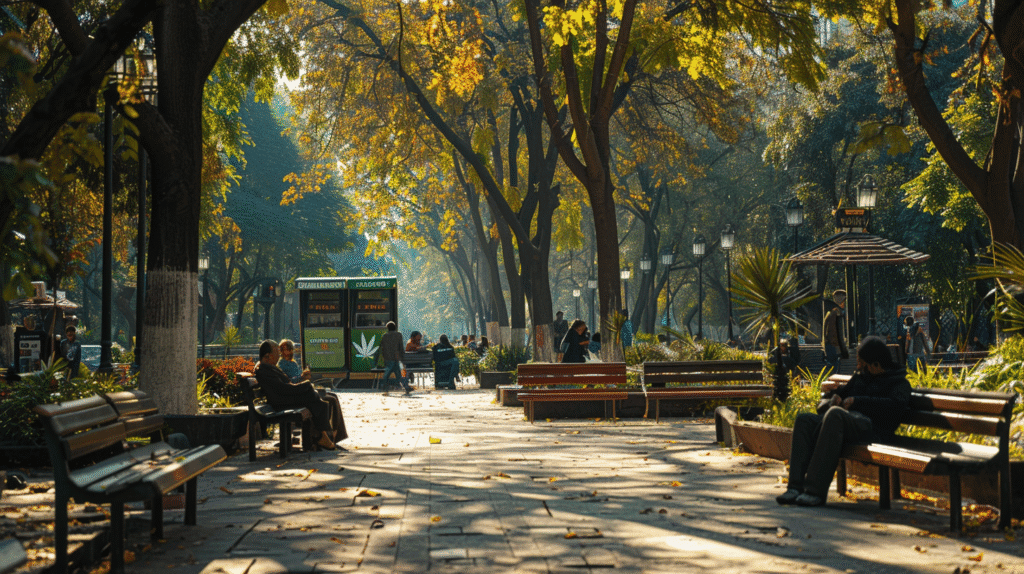Slovenia Files Adult-Use Bill As Medical Measure Advances

Slovenian legislators have proposed a legislative bill to legalize cannabis for ownership among adults, home cultivation and non-commercial distribution—going further than the advisory referendums of last year.
The bill would legalize cultivation of up to four plants (up to six per household), up to 7 grams outdoor possession, and up to 150 grams per individual in a home (300 grams per household). Commercial sales are still prohibited, but adults are allowed to distribute within the legal quantities.
The law includes detailed safety provisions, establishing an implied per se THC blood limit of 3 ng/mL, incremental penalties of €300/€600/€1,200 for violations, and a prohibition on routine workplace THC testing.
Both the Left and the Freedom Movement have expressed support, and presentations are to be made in autumn and then have three debate/votes afterwards.
Meanwhile, a new medicines bill—re-approved by National Assembly after National Council veto—would introduce cannabis extracts, flower and resin into a system of medicines regulation under the Public Agency of Medicines and Medical Devices.
THC would be regulated only outside of scientific/medical use. The two-prong solution charts a feasible course of action: legalize private use and provide pharmaceutical store access to patients.
Source: marijuanamoment.net
Colombia Poised To Allow Pharmacy Sales Of Medical Cannabis

Colombia’s ministry of justice has issued a draft decree to authorise pharmacies to sell prescription psychoactive medical cannabis—other than specialty and import shops.
Proposed legislation, recently revealed to the public, would make it legal for physicians to prescribe standardized varieties (such as extracts) of cannabinoids for specific conditions and drugs with more than 1% THC under close regulation.
Control and supervision would go through the Subdirectorate of Control and Supervision of Chemical Substances and Narcotic Drugs of the Ministry of Justice, and would cover from cultivation, through to processing, storage and transport to import and supply to pharmacies (as well as some veterinary stores).
The goal: reduced prices, streamlining supply chains and getting more patients onto the regulatory system.
If approved, the action would be a pragmatic follow-up to Colombia’s previous system of medicine and export liberalization—shifting national access from narrow channels to the country’s long chain of pharmacies, with physicians in the loop and regulatory compliance on board.
Source: softsecrets.com
Mexico Sets New Cannabis “Tolerance Zones”

Mexican capital Mexico City has established new ‘cannóbica zonas de tolerancia’ — legal sites of cannabis use restricted to adults only—following closures of previous ad-hoc sites opened in 2021.
The scheme tries to balance order and minimization of harm and reassert rights to private consumption.
There are three principal locations permitted now: Plaza de la Concepción (Belisario Domínguez in front of Eje Central), the monument Simón Bolívar (by Violeta on Paseo de la Reforma) and the Plaza de lectura José Saramago (across from the Estela de Luz).
There will be government officials at each location and an informational display from the city’s institute of addiction prevention.
These are cut and dry rules: only adults; 08:00–20:00 hours; stay max 40 min; weight per customer max 28 grams; no selling, alcohol, and drugs; no picture/video taking; only 100 individuals can enter; no transportation; no violence and harassment with a zero-tolerance approach.
These sites were selected to minimize disruption of traffic/pedestrians and to provide free access and safe usage, said officials.
Source: elpais.com
Switzerland Opens Its Legalization Blueprint To Public Input

Switzerland’s National Council Health Committee published its legalization-of-adult-use bill in an open consultation period of three months in late August—another measured step in a long, health-driven reform.
The bill classifies cannabis as a controlled narcotic under a public health framework with four key objectives: protecting minors, regulating cultivation and consumption, permitting adult use and possession, and maintaining state control over sales.
Its roots are found in a 2020 legislative proposal (“Regulation of the cannabis market for better youth and consumer protection”), its development from 2022 through deliberations of committees.
Policymakers aim for Canada-style objectives—providing legal access while discouraging use—though Swiss pilot projects continue to track end-user retail purchases and compliance.
Future milestones depend on consultation responses and parliamentary scheduling.
Source: stratcann.com
Morocco’s Legal Market Scales Up—And Tests How To Beat Black Market

Morocco’s legal cannabis market is growing fast, with some 5,000 producers going online in 2025 (up from 430 in 2023) and cleared production rising to ~4,200 tonnes in the past year, the local Moroccan regulator ANRAC says.
About 5,800 hectares are now licensed for the crop, a first ever for the Rif region, itself formerly a world source base of cannabis for export to European markets.
But the article points up the dilemma: illegal production still covers ~27,100 hectares and black-market resin potentially sells at about 2,500 dirhams/kg, substantially more and with faster payment terms than the legal system’s prices and slower payment terms through cooperatives.
Despite this, the farmers talk about “peace of mind” once they have relocated to legal co-ops which transform plant materials into medicine/cosmetics and construct export outlets.
Authorities are becoming tougher on enforcement of unlicensed trafficking but limiting the program to medicine and industry—rarely ever recreational.
Whether more legal harvests or simpler licenses will propel the change further is the question next—but no mistake about direction of momentum.
Source: reuters.com


